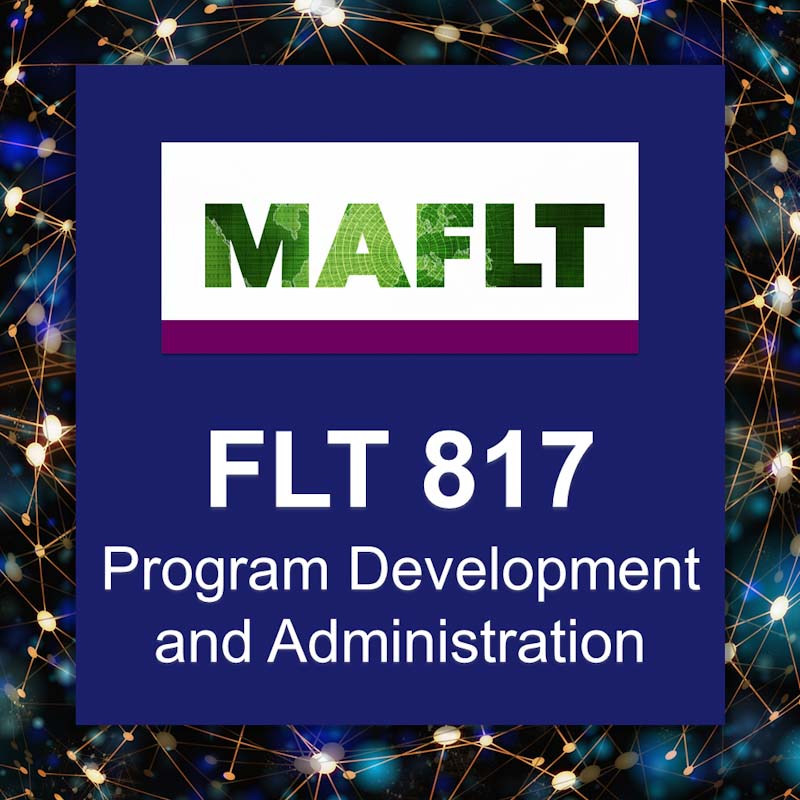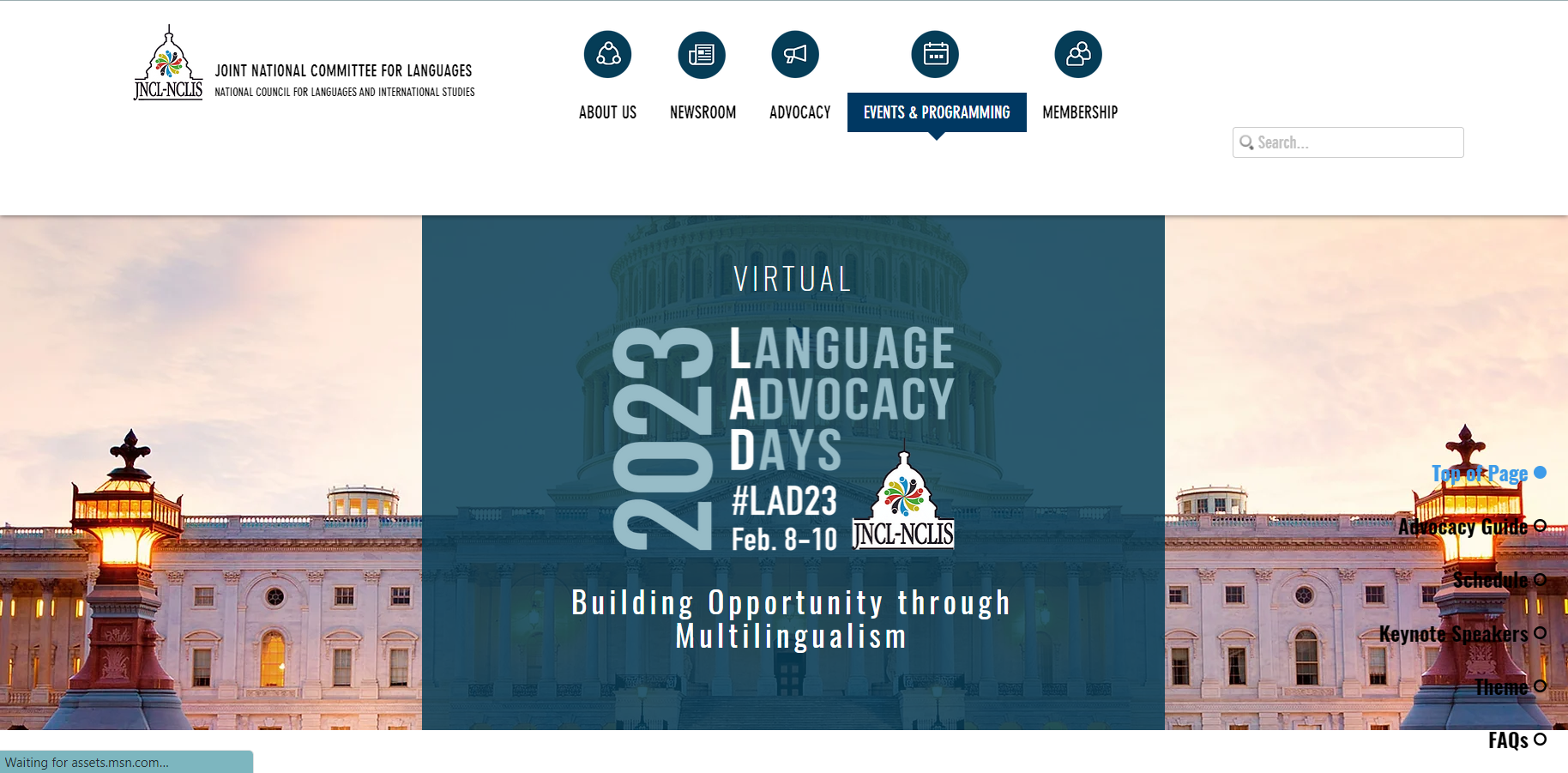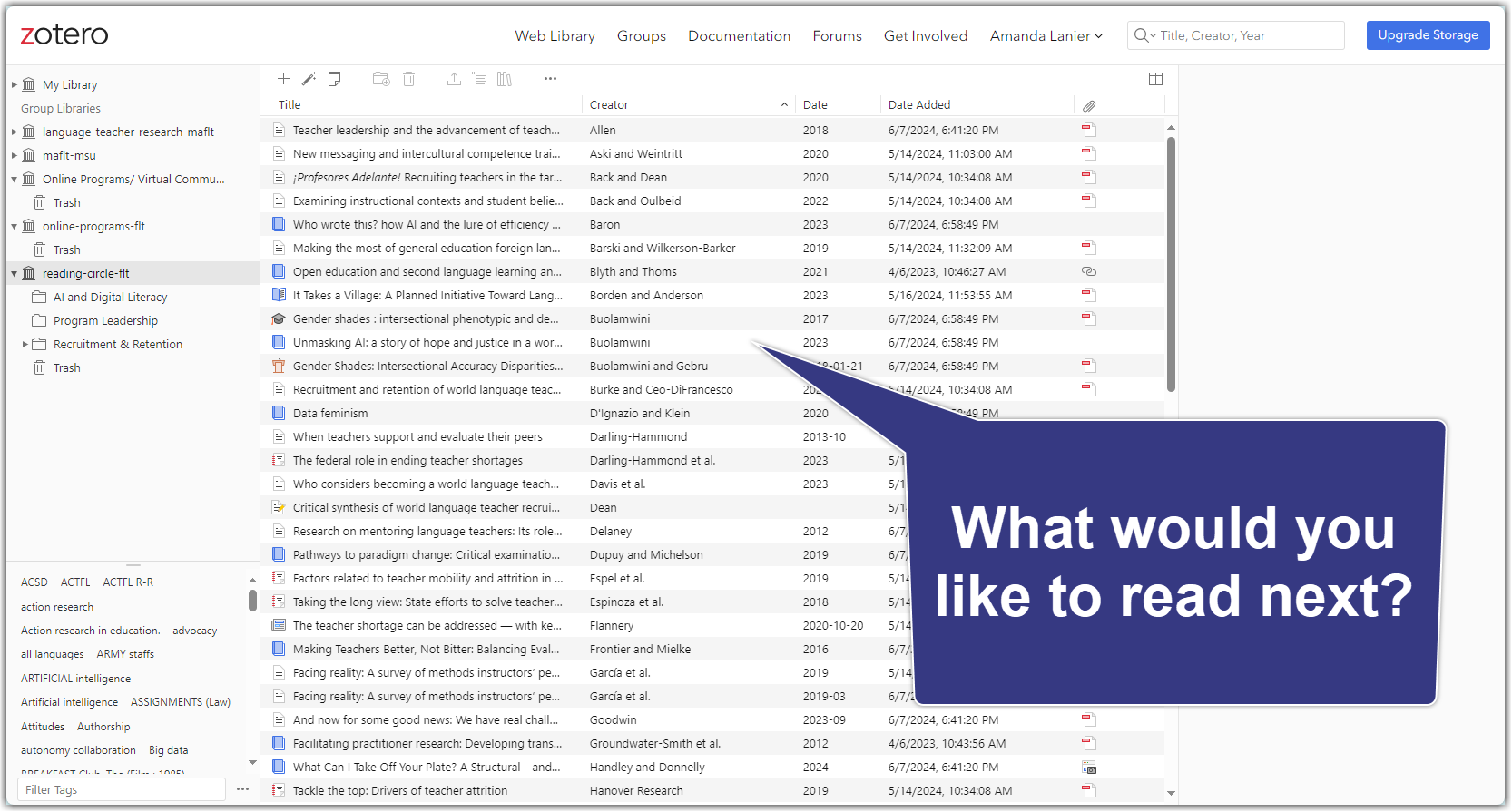Course Description

I have been teaching FLT 817 Program Development and Administration in the MAFLT Program since Spring 2020. Through the major assignments of that course, I have collaborated with over 60 in-service language teachers to conduct case studies of their language programs and to present their approaches to language teaching in our virtual conference, the Foreign Language Excellence Exchange.
Across the world and particularly in the United States, the field of foreign language teaching is facing critical challenges and yet can also address the challenges that prevent us from communicating and reaching consensus with others. A recent report commissioned by the American Academy of Arts and Sciences called America’s Languages: Investigating in Language Education for the 21st Century (www.amacad.org/publication/americas-languages) states that “there is an emerging consensus among leaders in education and science, business and government, international relations and the military, and community organizations and nonprofits… that a greater public emphasis on language education would yield results far greater than any initial financial investments” (p. 6). The goals proposed by the Commission on Language Learning include the following:
- Increase the number of language teachers at all levels of education so that every child in every state has the opportunity to learn a language other than English.
- Supplement language instruction across the education system through public-private partnerships among schools, government, philanthropies, businesses, and local community members.
- Support heritage languages already spoken in the United States, and help these languages persist from one generation to the next.
- Provide targeted programming and additional support for Native American languages being used as primary languages of education.
- Promote opportunities for students of all ages to learn languages by experiencing other cultures and immersing themselves in languages as they are used in everyday interactions and across all segments of society. (p. 6)
While the report emphasizes the shortage of language teachers, the answer to that need is not a matter of numbers alone. Instead, we must strive to be and to train excellent language teachers who can effectively move learners toward proficiency, create programs that support those teachers and learners, and develop broad networks of language educators who can collaborate with one another and also coordinate with other stakeholders. This course is intended to help current and aspiring language teachers to take up that mandate and develop or advance their skills in teacher leadership, including program evaluation, teacher supervision, curriculum design, and presentation of professional development opportunities.
Course Objectives
By the end of the semester, students in this course will be able to do the following with greater skill and effectiveness:
- Professionalization: Advance your own professional development by reflecting on your growth and needs and honing materials that can be used to articulate expertise and seek employment.
- Awareness and Advocacy: Identify, describe, and respond to issues facing the field of foreign language teaching today and respond appropriately to those issues.
- Teacher Supervision: Consider principles and practices of language teacher supervision, select and design methods of supporting and evaluating teachers, and create professional development materials for language teachers.
- Curriculum Development: Critically examine the needs of the learner, context, and other stakeholders, evaluate and select materials, and make decisions at the curricular level.
- Program Evaluation: Identify and describe common issues in foreign language program development and administration and carry out a thorough examination of an existing program.
- Research Engagement: Use methods of data collection and analysis including interviews, observations, and thematic coding appropriately to investigate and report on features of programs and teacher experience.
- Peer Collaboration: Collaborate with peers in the course to address issues mentioned above and to create professional development experiences for language teachers in and beyond our current community of practice.
Back to:









